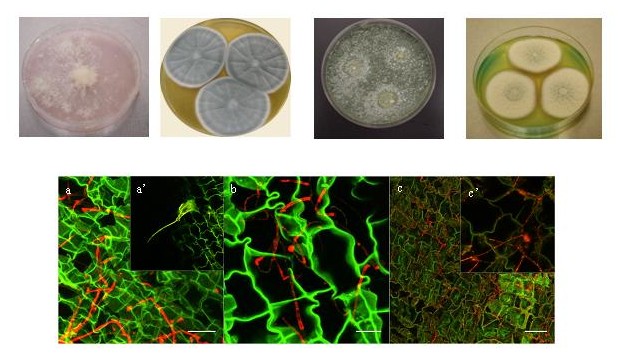Fungi in cork
PCP and TCP degradation mechanisms – TCA formation
Collaboration with the ITQB - Analytical Chemistry Group
- L. Vilas Boas
- R. Bronze
The goal of this work was the study of the mechanisms involved on the polychlorinated phenols degradation by cork colonising moulds. Some species have been screened for their ability to grow in presence of polychlorinated phenols and to produce polychloroanisoles. The occurence of other phenolic compounds along the all pathway was also investigated. The production of some enzymes is being studied.
Growth inhibition was assessed in the presence of different concentrations of polychlorinated phenols, mainly pentachlorophenol (PCP) and 2,4,6-trichlorophenol (2,4,6-TCP), in solid cultures.
- Fungi dynamics in a homogeneous community using the cork colonizing community as the study model
Maria do Carmo Basílio - PhD-student
The cork stoppers manufacturing process involves one step where fungi actively colonise cork. This community can be involved in the formation of off-flavours, but present valuable potential (e.g. production of cellulases and lipases).
On-going work aims at solving, by molecular methods, the species in this population. This includes identification/characterisation of novel taxonomic metabolic markers. Data will help in further understanding the dynamics of other complex fungal populations. Cork colonization (total and cultivable fungi) is under study using the DGGE technique. The isolated fungi are under characterization by phenotypic and molecular methods (collaboration with Prof. R. Samson, CBS). This work is being done in cooperation with Amorim & Irmão Company and collaboration with Dr Teresa Crespo (Microbiology of Man-made Environments) and Prof Rogério Tenreiro (ICAT - FCUL).





